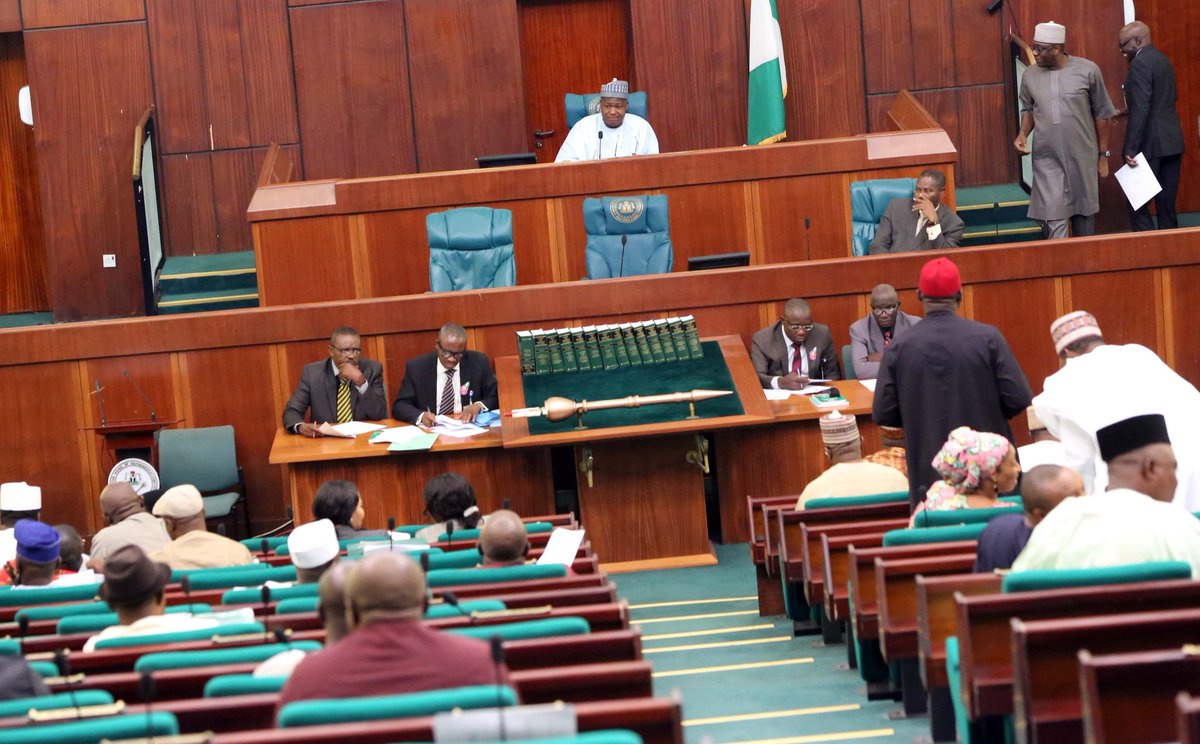- Reps Panel Wants N9bn Recovered from Capital Oil
The House of Representatives Committee on Petroleum Resources (Downstream) has directed the full recovery of N9bn into the treasury of the Federal Government from Capital Oil and Gas Limited.
The money is the balance of the N11bn worth of petroleum products, which allegedly disappeared from Capital Oil and Gas storage tanks in 2017.
The products were alleged to have been stored by the Nigerian National Petroleum Corporation in the private firm’s tanks under its various throughput arrangements with tank farm owners.
The committee, which is chaired by a member from Ondo State, Mr. Akinlaja Joseph, had investigated the alleged disappearance after it became public knowledge that the NNPC was unable to recover all the products when it demanded to have them.
It also came to light that a reconciliation of figures between the NNPC and Capital Oil and Gas left a balance of N9bn outstanding against the latter.
However, Capital Oil and Gas, in a testimony by its Managing Director and Chief Executive Officer, Mr. Ifeanyi Ubah, denied any fraudulent intention.
Rather, the firm stated that the NNPC actually owed it over N16bn from other transactions.
However, in its report to the House, which was obtained in Abuja on Sunday, the committee recommended the recovery of the outstanding N9bn from the firm.
It noted that its investigation confirmed that the amount was outstanding and should be fully recovered.
On the firm’s claim of being owed N16bn from other transactions, the committee asked the Economic and Financial Crimes Commission to investigate it.
The report stated, “Ensure the full recovery of the Federal Government’s money i.e. N9bn balance from Capital Oil and Gas Limited. The claims of N16bn the NNPC allegedly owes Capital Oil and Gas should be investigated by the EFCC.
“If found to be true, they (Capital Oil) should be paid or it should be net-off against the N9bn owed the Federal Government by Capital Oil and Gas.”
The panel further recommended that the former Managing Director, NNPC Retails, Mrs. Esther Nnamdi-Ogbue, who was sacked while she began an internal investigation into the matter, should be reinstated.
It also recommended that one Adio N. Yinusa, who was indicted for gross inefficiency, but was not punished, should be sanctioned immediately.
Investigations showed on Sunday that the House had planned to consider the report of the committee on Thursday last week, but later deferred it till Tuesday and Wednesday this week.
“The report will be listed this week for consideration by members in Committee of the Whole”, a senior official said on Sunday.
The report of the panel read in part, “That NNPC Retails should embark on a comprehensive review of all throughput agreements with depots, especially Article 11.1, to remove the lapses usually exploited by depot owners who sell NNPC products without authorisation.
“The report of the review should be submitted to the committee within two months from the day this report is adopted. That NNPC Retails Limited and the PPMC should conduct a quarterly training of all NNPC Retail staff representing it in private depots to improve their knowledge of contract terms.
“That NNPC Retails should set up an online real-time solution that will require depot owners who buy bulk products to inform NNPC Retails in real-time and the information made available to all stakeholders. The online software should also reflect load-out products from all the depots where the NNPC subsidiaries have throughput agreements.”


 Naira4 weeks ago
Naira4 weeks ago
 Naira4 weeks ago
Naira4 weeks ago


 Naira4 weeks ago
Naira4 weeks ago




 Naira3 weeks ago
Naira3 weeks ago
 Commodities4 weeks ago
Commodities4 weeks ago


 News3 weeks ago
News3 weeks ago


 Banking Sector4 weeks ago
Banking Sector4 weeks ago
 Travel4 weeks ago
Travel4 weeks ago























